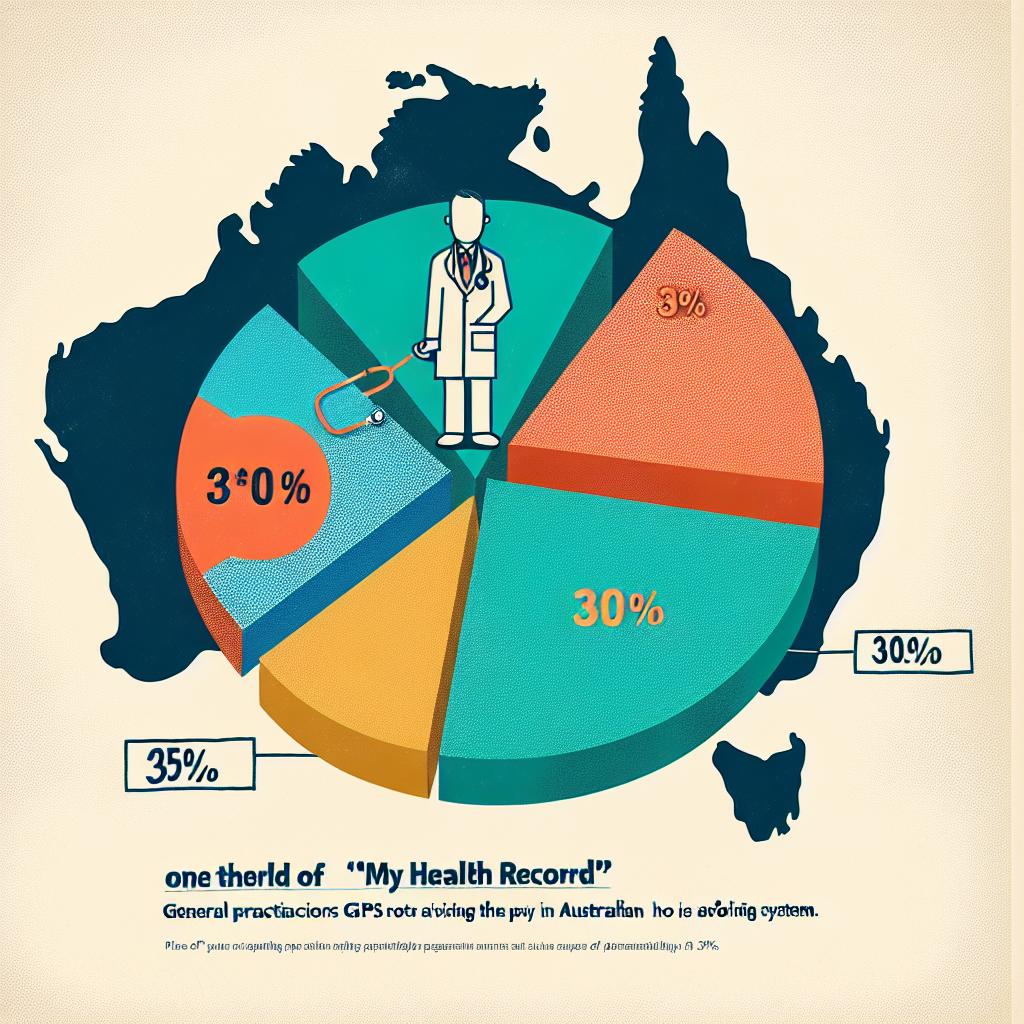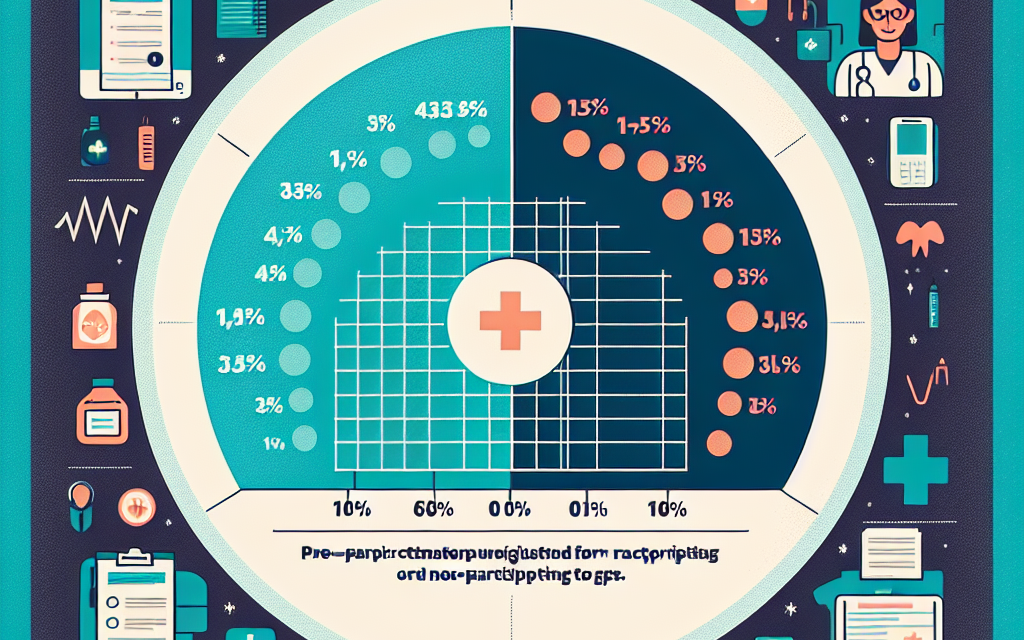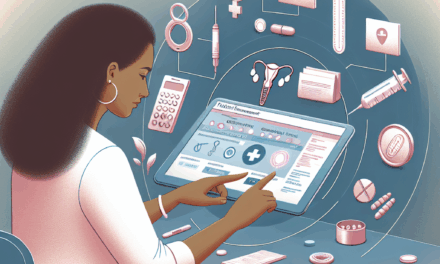Survey Reveals One-Third of Australian GPs Avoid My Health Record

In recent years, the Australian government has made significant strides in digitizing healthcare records through the My Health Record system. This initiative aims to streamline patient information, improve healthcare delivery, and enhance patient outcomes. However, a recent survey has revealed that one-third of Australian General Practitioners (GPs) are avoiding the use of My Health Record. This article delves into the reasons behind this trend, the implications for the healthcare system, and potential solutions to increase adoption among healthcare professionals.
Understanding My Health Record
My Health Record is a digital health record system introduced by the Australian government to provide a comprehensive and accessible repository of patient health information. It is designed to facilitate better coordination of care among healthcare providers and empower patients with access to their health data.
The system includes a wide range of information, such as medical history, medications, allergies, and test results. It is intended to be a one-stop-shop for healthcare providers to access critical patient information, thereby reducing the risk of medical errors and improving the quality of care.
Despite its potential benefits, the adoption of My Health Record has been met with resistance from a significant portion of the medical community. Understanding the reasons behind this reluctance is crucial to addressing the challenges and enhancing the system’s effectiveness.
The Vision Behind My Health Record
The primary goal of My Health Record is to create a centralized digital platform that enhances the efficiency and effectiveness of healthcare delivery. By providing healthcare providers with easy access to patient information, the system aims to:
- Reduce duplication of tests and procedures
- Minimize the risk of medication errors
- Improve coordination of care among different healthcare providers
- Empower patients with access to their health information
- Facilitate better health outcomes through data-driven insights
Despite these ambitious goals, the system’s implementation has faced several hurdles, leading to skepticism among healthcare professionals.
Challenges in Implementation
The implementation of My Health Record has been fraught with challenges, ranging from technical issues to concerns about data privacy and security. These challenges have contributed to the reluctance of some GPs to fully embrace the system.
Technical issues, such as system downtime and slow performance, have hindered the seamless integration of My Health Record into existing healthcare workflows. Additionally, concerns about data privacy and security have been a significant barrier to adoption. Many healthcare professionals are wary of the potential for data breaches and unauthorized access to sensitive patient information.
Furthermore, the lack of comprehensive training and support for healthcare providers has also been a contributing factor. Many GPs feel ill-equipped to navigate the system effectively, leading to frustration and reluctance to use it.
Reasons for GP Reluctance
The survey revealing that one-third of Australian GPs avoid My Health Record highlights several key reasons for their reluctance. Understanding these reasons is essential to addressing the barriers to adoption and improving the system’s effectiveness.
Concerns About Data Privacy and Security
One of the most significant concerns among GPs is the issue of data privacy and security. The healthcare sector is a prime target for cyberattacks, and the potential for data breaches is a major concern for healthcare professionals.
Many GPs are worried about the security of patient information stored in My Health Record. The fear of unauthorized access to sensitive data and the potential for misuse of information are significant deterrents to adoption. These concerns are not unfounded, as there have been instances of data breaches in healthcare systems worldwide.
To address these concerns, it is crucial for the government and system administrators to implement robust security measures and provide assurances to healthcare providers about the safety of patient data.
Lack of Integration with Existing Systems
Another major barrier to adoption is the lack of seamless integration between My Health Record and existing healthcare systems. Many GPs use different electronic health record (EHR) systems, and the lack of interoperability between these systems and My Health Record creates additional work and complexity for healthcare providers.
The need to manually input data into multiple systems is time-consuming and increases the risk of errors. This lack of integration is a significant deterrent for GPs who are already burdened with heavy workloads and administrative tasks.
Improving interoperability and ensuring that My Health Record can seamlessly integrate with existing EHR systems is essential to increasing adoption among healthcare providers.
Perceived Lack of Value
Some GPs perceive My Health Record as offering little value to their practice. They argue that the system does not provide significant benefits over existing methods of record-keeping and communication with other healthcare providers.
This perception is often fueled by the lack of comprehensive training and support for healthcare providers. Many GPs feel that they do not have the necessary skills or knowledge to effectively utilize the system, leading to frustration and reluctance to use it.
To address this issue, it is important to provide healthcare providers with adequate training and support to help them understand the potential benefits of My Health Record and how to use it effectively in their practice.
Implications for the Healthcare System
The reluctance of one-third of Australian GPs to use My Health Record has significant implications for the healthcare system. Understanding these implications is crucial to addressing the challenges and improving the system’s effectiveness.
Impact on Patient Care
The reluctance of GPs to use My Health Record can have a direct impact on patient care. The system is designed to provide healthcare providers with easy access to critical patient information, which can improve the quality of care and reduce the risk of medical errors.
When GPs do not use the system, they may not have access to important information about a patient’s medical history, medications, and allergies. This lack of information can lead to suboptimal care and increase the risk of adverse events.
To improve patient care, it is essential to address the barriers to adoption and encourage more GPs to use My Health Record.
Increased Healthcare Costs
The reluctance of GPs to use My Health Record can also lead to increased healthcare costs. The system is designed to reduce duplication of tests and procedures, which can help to lower healthcare costs.
When GPs do not use the system, they may order unnecessary tests and procedures, leading to increased costs for both patients and the healthcare system. Additionally, the lack of coordination among healthcare providers can result in inefficient use of resources and increased costs.
To reduce healthcare costs, it is important to address the barriers to adoption and encourage more GPs to use My Health Record.
Challenges in Data-Driven Healthcare
My Health Record has the potential to facilitate data-driven healthcare by providing healthcare providers with access to comprehensive patient data. This data can be used to identify trends, improve patient outcomes, and inform healthcare policy.
However, the reluctance of GPs to use the system limits its potential for data-driven healthcare. Without widespread adoption, the system cannot provide the comprehensive data needed to drive improvements in healthcare delivery and policy.
To realize the potential of data-driven healthcare, it is essential to address the barriers to adoption and encourage more GPs to use My Health Record.
Potential Solutions to Increase Adoption
Addressing the barriers to adoption and increasing the use of My Health Record among GPs is crucial to realizing the system’s potential benefits. Several potential solutions can help to increase adoption and improve the system’s effectiveness.
Enhancing Data Privacy and Security
One of the most important steps in increasing adoption is to address concerns about data privacy and security. Implementing robust security measures and providing assurances to healthcare providers about the safety of patient data is essential.
This can include measures such as encryption, multi-factor authentication, and regular security audits. Additionally, providing healthcare providers with clear information about how patient data is protected and how they can ensure its security can help to alleviate concerns.
Improving Integration with Existing Systems
Improving interoperability and ensuring that My Health Record can seamlessly integrate with existing EHR systems is essential to increasing adoption among healthcare providers.
This can involve working with EHR vendors to develop integration solutions and providing healthcare providers with the tools and support they need to integrate My Health Record into their existing workflows.
Providing Comprehensive Training and Support
Providing healthcare providers with comprehensive training and support is crucial to increasing adoption and helping them understand the potential benefits of My Health Record.
This can include training programs, online resources, and support from system administrators. Additionally, providing healthcare providers with opportunities to share their experiences and learn from their peers can help to build confidence and encourage adoption.
Conclusion
The reluctance of one-third of Australian GPs to use My Health Record highlights several key challenges and barriers to adoption. Addressing these challenges is crucial to realizing the system’s potential benefits and improving healthcare delivery in Australia.
By enhancing data privacy and security, improving integration with existing systems, and providing comprehensive training and support, it is possible to increase adoption and encourage more GPs to use My Health Record. This, in turn, can lead to improved patient care, reduced healthcare costs, and the realization of data-driven healthcare.
Ultimately, the success of My Health Record depends on the collaboration and commitment of all stakeholders, including healthcare providers, system administrators, and policymakers. By working together, it is possible to overcome the challenges and create a more efficient and effective healthcare system for all Australians.





